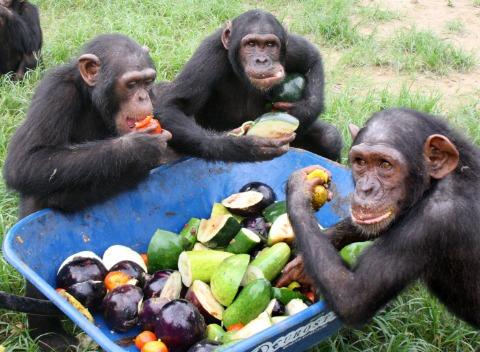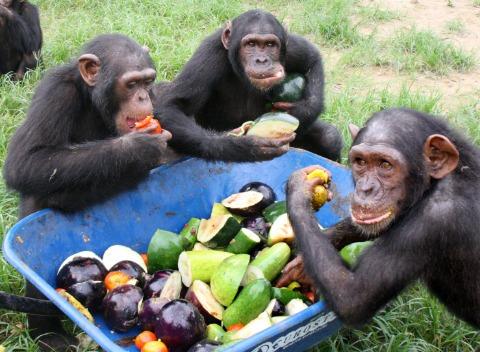
Credit: © the Jane Goodall Institute / By Fernando Turmo
ANN ARBOR–When it comes to cooperation, there's no monkey business in how some chimpanzees respond.
These primates often make decisions faster that benefits others than themselves, according to a newly published University of Michigan study.
For decades, social scientists and biologists have sought to study primates because they are humans' closest living relatives. Chimpanzees can also be very cooperative in the wild–forming alliances with friends or hunting together in groups.
"Chimpanzees are an important comparative model for human cooperation," said Alexandra Rosati, U-M assistant professor of psychology and anthropology.
Rosati, the study's lead author, and colleagues at Harvard University examined how chimpanzees from the Republic of Congo think about cooperative decisions and the response time in situations involving prosocial behavior, which involves how one's actions benefit others, such as giving time, effort or resources.
The 40 chimpanzees completed tasks that assessed cooperation and self-control, including:
Donation task: The chimpanzee could provide food to both himself and a partner at no cost, or choose to only get food for himself. Chimpanzees were more likely to pick the prosocial option if they made a fast choice–as though their gut reaction was to cooperate with the partner. If they took longer to decide, however, they were more likely to keep the food for themselves.
Helping task: The chimpanzee could give a partner an object that was out of reach. Individual chimpanzees that were more likely to lend a hand were also the fastest to respond to their partner's problem. In general, this supports situations in which cooperative individuals tend to make prosocial choices faster than selfish people.
Punishment task: The chimpanzee could stop a thief from taking a stolen resource by collapsing a table so the thief couldn't get food. Like in the helping study, the chimpanzees who were most reactive to unfairness tended to collapse the table more quickly.
Thus, in both reward and punishment contexts, the chimpanzees made prosocial choices more rapidly than those benefiting themselves.
"Ultimately, our results show that chimpanzee cooperation involves several cognitive mechanisms that parallel those seen in humans," the researchers wrote.
###
The study's other authors were Harvard researchers Lauren DiNicola and Joshua Buckholtz. The findings appear in the current issue of Psychological Science.
Media Contact
Jared Wadley
[email protected]
@umich
http://www.umich.edu/





